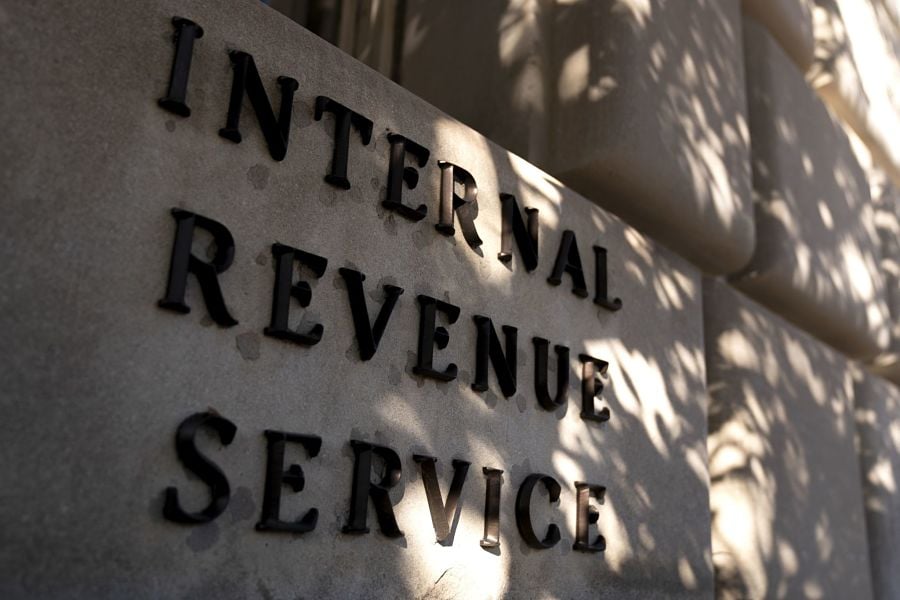

The Internal Revenue Service issued Notice 2022-53 on Oct. 7, 2022, providing RMD relief by waiving the excise tax (the 50% RMD penalty) for missed 2021 and 2022 inherited retirement account required minimum distributions (RMDs) for beneficiaries subject to the SECURE Act 10-year payout rule.
The Notice says the IRS will not impose the 50% penalty for missed 2021 or 2022 RMDs within the 10 years if the account owner died in 2020 or 2021 on or after their RMD required beginning date with a designated beneficiary who is not an eligible designated beneficiary (EDB). (See the definition of “eligible designated beneficiary” below.)
The waiver is also applicable to certain successor beneficiaries who are subject to the 10-year rule.
Although the Notice is not clear, it appears that, since the penalty is waived, the 2021 and 2022 RMDs within the 10-year period do not have to be taken.
The Notice does not affect lifetime RMDs for IRA owners who are unaffected by these rules. IRA owners subject to lifetime RMDs must still take them and are still subject to the 50% penalty for any RMDs that are missed.
This RMD relief also does not apply to IRAs inherited by eligible designated beneficiaries or RMDs by beneficiaries who inherited before 2020.
Eligible designated beneficiaries (EDBs) still get to use the stretch IRA, so this relief does not apply to them. Their RMDs must still have been taken in 2021 and for years after that.
As background, the SECURE Act became effective for beneficiaries of IRAs and company plans in 2020 or later. The SECURE Act eliminated the so-called “stretch IRA” where designated beneficiaries could extend their RMDs over their lifetimes creating long deferrals based on their age.
The SECURE Act eliminated this stretch IRA for most beneficiaries (except for EDBs and beneficiaries who inherited before 2020) and replaced it with a 10-year rule that requires the entire inherited IRA or plan balance be withdrawn by the end of the 10th year after death. At that point, most commentators believed that there would be no RMDs required during this 10-year period.
But then in February 2022, IRS issued proposed regulations stating that there would be annual RMDs for beneficiaries who inherited from someone who died after their RMDs had begun (generally after age 72, their required beginning date for RMDs).
This caught everyone by surprise. Under these IRS rules, if a beneficiary, say an adult child inherited her father’s IRA in 2020 and he died at age 80 (after he had begun taking RMDs), then she would be subject to the 10-year rule. But she would also have to take RMDs based on her age starting in the year after death and continuing for years one through nine of the 10-year term. Under the 2022 IRS proposed regulations, she would have had to take her first RMD in 2021. But she didn’t take that RMD since no one thought that was necessary until the IRS said so in 2022. So, what should she do? She has a potential 50% penalty for not taking her 2021 RMD.
The IRS has said not to worry. There will be no 50% RMD penalty for 2021 or 2022. Essentially, these RMDs don’t even have to be taken.
In Notice 2002-53, the IRS said it received several comments indicating that it would be unfair to apply the annual RMD requirement when an account holder died in 2020, since the non-EDB would not have known that an RMD was required in 2021.
Additionally, the IRS Notice stated if a beneficiary paid the excise tax (the 50% penalty) for a missed 2021 RMD, the beneficiary can request a refund from the IRS. This is probably unlikely to have happened, but it’s good to know.
The IRS says that annual RMDs in these situations will not have to start until 2023 at the earliest.
The Notice also gives relief to certain successor beneficiaries. It excuses the 50% penalty for 2021 and 2022 RMDs for the beneficiary of an EDB who died in 2020 or 2021 while taking annual RMDs. And like missed RMDs for other affected beneficiaries, essentially these RMDs do not have to be taken at all.
Beneficiaries who inherited a Roth IRA do not need this relief because under the IRS proposed regulations, anyone who inherits a Roth IRA is deemed to have inherited from someone who died before their required beginning date. This is because Roth IRA owners are not subject to lifetime RMDs. Roth IRA beneficiaries are still subject to the 10-year rule, but they will not have to take RMDs for years one through nine.
Tell your beneficiary clients who are affected by this that the IRS has provided relief on missed RMDs. For once, they will not have to worry about it!

Relationships are key to our business but advisors are often slow to engage in specific activities designed to foster them.

Whichever path you go down, act now while you're still in control.

Pro-bitcoin professionals, however, say the cryptocurrency has ushered in change.

“LPL has evolved significantly over the last decade and still wants to scale up,” says one industry executive.

Survey findings from the Nationwide Retirement Institute offers pearls of planning wisdom from 60- to 65-year-olds, as well as insights into concerns.
Streamline your outreach with Aidentified's AI-driven solutions
This season’s market volatility: Positioning for rate relief, income growth and the AI rebound
